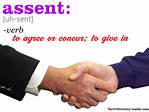Usually,
never, seldom, always, generally
These
expressions are almost always used with the simple present tense.
·
He
seldom donates money to charities.
·
He
always wears neat clothes.
·
You
never thank me for anything.
·
I
usually drink coffee in the morning.
At
present, now, at the moment, right now etc
These
expressions are usually used with the present continuous tense.
·
I
am learning German now.
·
He
is working on a new novel at present.
·
He
is doing research in molecular biology at the moment.
Already,
just, yet
These
expressions are usually used with the present perfect tense.
·
I
have already watched that movie.
·
We
have not yet heard from them.
·
John
has just left.
Since
and for
These
time expressions are usually used with the present perfect and present perfect
continuous tenses.
·
We
have lived here since 1999.
·
I
have been working since morning.
·
It
has been raining for hours.
·
We
have been living here for six years.
Yesterday,
last year, some years ago
Use
these expressions with the simple past tense.
·
I
met him yesterday.
·
His
father died three years ago.
·
I
visited Japan last year.
Tomorrow,
next year, next month
These
expressions are usually used with the simple future tense.
·
I
will talk to him tomorrow.
·
We
will move to our new home next month.
·
He
will retire next year.












